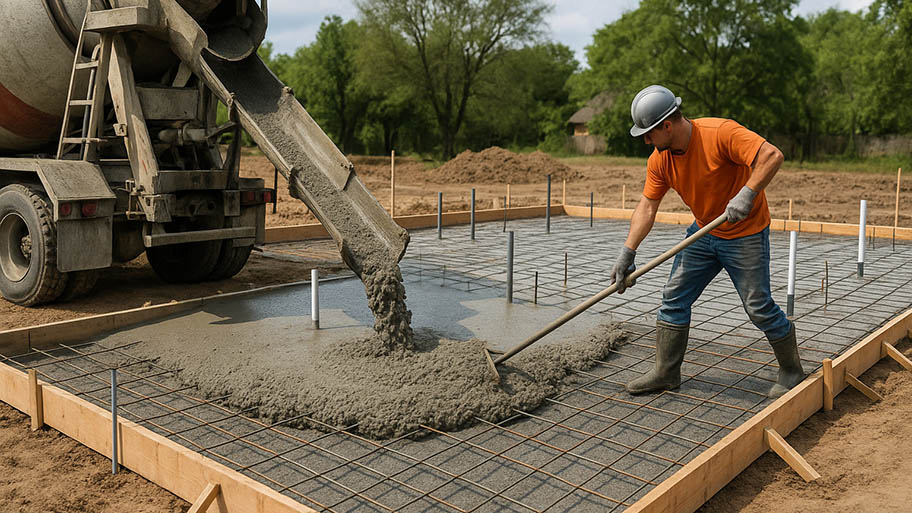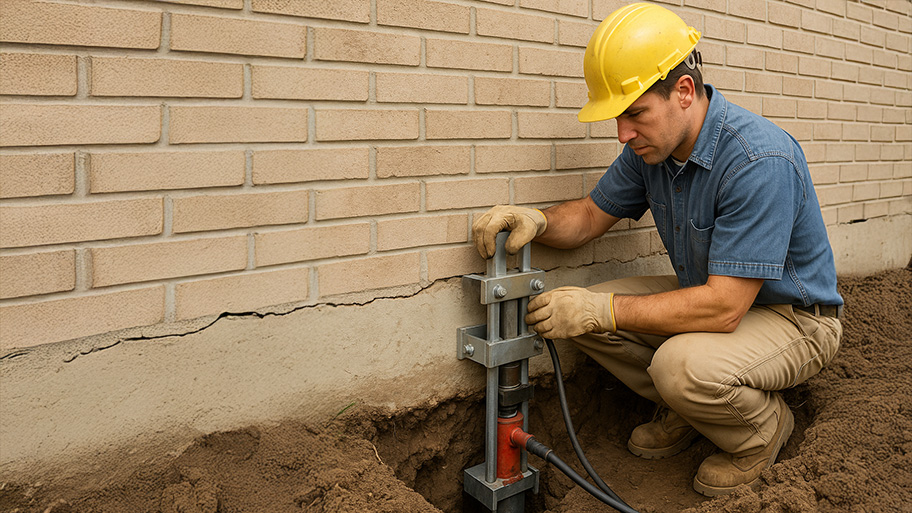
Crawl space maintenance can help improve indoor air quality and avoid structural damage. Learn how much crawl space cleaning costs and when to schedule it.
Some problems aren't worth the headache


Foundation damage happens with drainage problems, soil issues, construction errors, or pests.
Wall cracks, dampness, warping, and mold or mildew are signs of foundation issues.
You can often negotiate a lower buying price if an inspection shows foundation damage.
Walk away from unresolvable drainage or soil issues, as well as high repair costs and lengthy repairs.
Buying a house can be an exciting experience, but while it’s easy to get caught up in the aesthetics, there are important criteria to consider in a new home. A home without a sound structure can cause major issues in the future, and the best way to avoid that is to be smart about evaluating your potential new home’s foundation. Read on for everything you need to know about a home's integral structure and find out when to walk away from foundation issues.
The foundation of a house is the most critical part of its structural integrity, supporting the weight of the entire building while keeping it dry and insulated from groundwater. It is the lowest load-bearing portion of the structure and acts as an anchor, securing it during natural disasters such as earthquakes, hurricanes, and tornadoes. As such, any problems with the foundation can cause severe structural issues for the house.
While there are different foundation systems, below are a few of the most common:
Basement: Basements are created by excavating beneath the ground level and incorporating walls and floors of reinforced concrete. With its considerable space, many homeowners utilize this area as additional living space.
Crawl Space: Foundations with crawl spaces are supported by masonry walls around the perimeter and multiple footings beneath, but there is no concrete flooring to complete the space. This type of foundation lifts a house from the ground by 1 to 4 feet, providing a gap to the house's plumbing and electrical components.
Slab: Slab foundations are basic concrete slabs that are 8 inches thick, while slab-on-grade foundations are constructed with footings along the border and beneath weight-bearing walls. Generally 4-6 inches in thickness, these single slabs provide a foundation for the home.
Other foundation types include pressure-treated wood, stone, and insulated concrete form (ICF).
Foundations are vulnerable to numerous different issues, which can result in cracks, deterioration, leaks, or sinking. Some of the most common problems include:
Inadequate drainage: Poor drainage can weaken a foundation when water doesn't run off, so professionals often suggest sloping the lawn, constructing a drain, or expanding downspouts.
Volatile soils: Expansive soils, triggered by the changing water volume, can lead to cracks that may invite more water-related problems.
Building errors: Incorrect building procedures may require considerable construction repairs.
Termite damage: Termite destruction, usually of properties with crawl spaces and beam foundations, requires extermination and possibly repairing damaged wood.

If a home has foundation problems, you may notice some visible signs of a more severe issue. While you may be able to spot these on your own, an experienced local home inspector can give insight on what to look out for.
Some common signs of foundation issues may include:
Bouncing floors
Cracks in floors or walls
Damp or wet basement
Gaps between walls and windows
Leaning structures such as a chimney or porch
Mold or mildew in the basement
Popping in drywall or tiles
Uneven floors
Warped ceilings
Your foundation's condition can affect your home value. If you have any foundation issues, be sure to disclose them before making a sale. Hire a structural engineer to look at your foundation and share what they say with potential buyers.
When buying a house, it's always worth paying for a home inspection—especially if you suspect foundation problems may exist. The inspection can give you insight into the root of the problem and can let you know if the house can be maintained in the long run. With an understanding of the extent of the issue and the costs associated with repairing it, you can make an educated decision about purchasing the property.
It may be possible to negotiate the purchase price of a home with issues, including foundation issues, to offset repair costs. You may also be able to add a stipulation about having the original homeowner take care of repairs before the sale goes through. If it's a buyer's market, you're much more likely to have a leg up in negotiations.
Your lender may require the home to be structurally sound. However, government-backed renovation loans such as FHA 203(k) or USDA rehab loans can provide you with the resources necessary to address the repairs.
Foundation issues don't have to be a deal-breaker. While it might sound like a complete hiccup in the home-buying process, there are still ways to proceed depending on the problem and its severity. Minor problems such as cracks and moisture can usually be fixed without much trouble, and financing isn't usually affected. Major issues such as significant settling or deterioration can be a roadblock.
The cost of repairing foundation damage will largely depend on what issues need addressing, the foundation type, house size, and other factors. On average, foundation repair cost ranges between $2,161 to $7,780.
Some foundation repair methods come with more extreme costs depending on the project. Lifting a foundation is one example. The overall cost of raising a foundation to its original height depends on its type, how much needs to be lifted, and which components require lifting. Generally, it is a major task ranging between $20,000 and $23,000.
Another expensive foundation project is underpinning basements, with the cost ranging from $1,000 to $3,000 per pier. This repair offers a lasting fix, preventing any potential problems in the future if the house were to move again and affording you lasting peace of mind.
Walking away from foundation problems in a house can be a sensible decision if the cost of repairs is higher than what the seller is offering in price reductions or if the extent of the damage and the associated fixes exceed your available resources or require too much time.
Getting the opinion of a foundation repair specialist is recommended to determine if the investment is worthwhile. Reasons for when to walk away from foundation issues may include:
The repair cost exceeds the seller's concession.
The duration of repair exceeds the desired timeline.
The repair must be completed to be eligible for government-backed financing.
The property might have drainage problems that cannot be resolved.
The area is prone to unstable soil, leading to possible recurring issues.
You could still consider the purchase if there are no significant warning signs, and you may even be able to get a deal if the seller is open to negotiation. Though small foundation flaws do not necessarily have to end the deal, you should also check that buying a house with this problem does not exceed your finances.
From average costs to expert advice, get all the answers you need to get your job done.

Crawl space maintenance can help improve indoor air quality and avoid structural damage. Learn how much crawl space cleaning costs and when to schedule it.

A foundation for a new-build home averages around $11,000. Find out all the factors that affect the cost of a foundation and how to save money.

Whether trying to protect it or transport it, raising a house is no small feat. Read on to find out everything you need to know about the cost to raise a house.

All foundations settle, but some can develop related structural issues. Use this guide to identify foundation settlement and determine when to take action.

Can’t tell the difference between a footing versus a foundation? Learn how they differ and how to tell them apart in this guide to foundations and footings.

Identifying foundation issues early is the best way to avoid severe, expensive damage. Use this foundation inspection guide to check for budding problems.